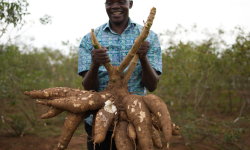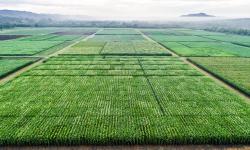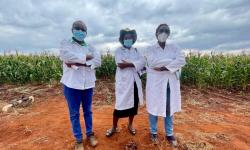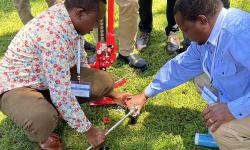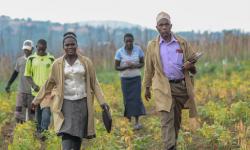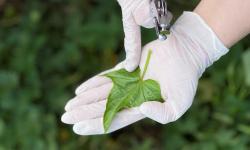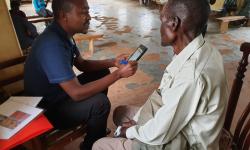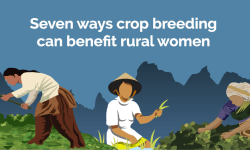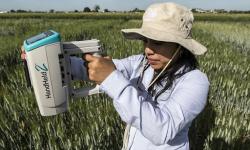All news and blogs
Success story | Julie Puech | 11/1/2024
Roots, tubers, and bananas (RTB) are vital food sources for over 3 billion people in Africa, offering high calorie yields per hectare and...
How CGIAR maize breeding is improving the world's major staple crop for tropical regions
Success story | Julie Puech | 19/12/2023
By Prasanna Boddupalli, Director, CGIAR Global Maize Program, CIMMYT & CGIAR Global Maize Breeding Lead Maize production is surging due to its diversified end uses. While it is...
Leading with vision: Meet the Breeding Resources Initiative leads
| Adam Hunt | 15/2/2023
How can we ensure crop breeding programs best varieties, faster, and more efficiently? CGIAR’s Breeding Resources Initiative (BRI) is working to bring tools, technologies and services to programs in the CGIAR-NARES (national agricultural research and extension systems) networks.Through two short video interviews, Initiative lead Young Wha Lee, and co-Lead Sharifah Shahrul Syed Alwee (Senior Director,...
Five ways CGIAR accelerated crop breeding in 2022
Success story | Adam Hunt | 5/1/2023
CGIAR has a rich history of crop breeding results, but modern challenges abound. Too many farmers are still using out-of-date varieties. Climate change is risking crop productivity. And populations in Africa and Asia need more nutritious food now.But we’ve seen a...
Five ways new equipment and training help deliver crop breeding impacts
| Adam Hunt | 21/10/2022
If public crop breeding is to reach its lofty goals, breeders and breeding stations need to have the right equipment. Upgrading equipment means time saved, better accuracy in data collection, and less errors and inefficiencies in the field. But equipment is only as good as the ability to operate and maintain it – crucial for full adoption. All of this is vital to modernize...
How research stations can be more gender inclusive
How to | Misha Nicholas | 28/7/2022
Both science and agriculture are often male-dominated. But this is starting to change as women take on stronger roles in science and farm management – and organizations commit to real progress.In breeding operations, women have been marginalized all too often. But...
How crop breeding can benefit the environment
Opinion | Misha Nicholas | 21/4/2022
Modern agricultural practices have enabled food production to meet — and even outpace — demands from growing populations. But the rapid growth in production has often come at the cost of significant land and water degradation, biodiversity losses and increased greenhouse gas...
Crowdsourcing market intelligence to boost sweetpotato breeding impacts in Uganda
Success story | Adam Hunt | 23/3/2022
Source: International Potato Center (CIP) Scientists with the International Potato Center (CIP) and Uganda’s National Crops Resources Research Institute (NaCRRI) are harnessing the...
Infographic shows how crop breeding can benefit women
| Misha Nicholas | 6/3/2022
To many, crop breeding may sound very scientific and technical. But there are key social aspects to it, too. As we mark International Women’s Day, let’s examine the links between gender and the science of breeding. Breeding has a tremendous opportunity to benefit women, or at least “do no harm.” This is especially true for rural women in developing countries. To do so, breeding programs must incorporate gender...
How to drive tech adoption among crop breeders? This new framework is key
How to | Adam Hunt | 22/2/2022
Handheld device being deployed in the wheat physiology process. Source: Alfredo Sáenz, CIMMYT A crop breeder’s relationship with technology can drive or stall progress. And in many cases, public breeding programs are playing catch-...
